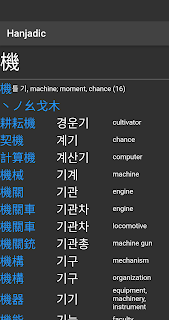7,281,139 Korean verbs conjugated
dongsa.net (now koreanverb.app) was launched on June 28, 2009. Verb tracking was added on December 13, 2013. Since tracking was added visitors to the site have conjugated verbs over 7 million times.
When I first started learning Korean I was always confused about why verbs underwent some of the odd orthographic changes they do so I spent some time attempting to reverse engineer the changes that are made and came up with an algorithm to conjugate verbs. The benefit of this was that I could have the algorithm explain why certain changes were made.
Here is an example of the verb 걷다 which means to walk or to step which has a nominal form of 걸음:
| nominal ing | 걸음 |
| |
If you are learning Korean I'm sure koreanverb.app will be a great resource.
Top 10 verbs over the past 10+ years of operation
| Place | Verb | Notes |
| 1 | 하다 | 하다 is a widely used verb ending in Korean. It has many meanings including to have, to do, to make, to play and many other meanings. |
| 2 | 이다 | 이다 is the copula in Korean. It is like "to be" in English in all ways outside of existence. |
| 3 | 듣다 | 듣다 is a tricky irregular verb where the stem becomes 들어 in some conjugations. It's no wonder students have to look this one up so often. |
| 4 | 가다 | To go |
| 5 | 쓰다 | To use, to write, to wear |
| 6 | 보다 | To see, to try |
| 7 | 공부하다 | To study |
| 8 | 먹다 | To eat - nothing special about this verb. People must just want to know how to say that they want to eat! |
| 9 | 걷다 | Another ㄷ irregular similar to 듣다. |
| 10 | 쉬다 | This one might be confusing because of the number of consecutive vowels all packed in to the conjugation. |
I've been working on rewriting the application in Flutter recently so I can release an iOS version again. Believe it or not that will be the 5th language that the conjugation algorithm has been written in. The first commit was written in Erlang believe it or not but I abandoned that effort. I also worked on a PHP version which I abandoned. The site originally launched running a Python version of the conjugator and then to make it easier to run as an app I ported it to JavaScript. I later tried porting it to ClojureScript (which I abandoned). And now I've finished writing it in Flutter/Dart and all I have to finish is the UI (always the hardest part for me).

Comments
Post a Comment